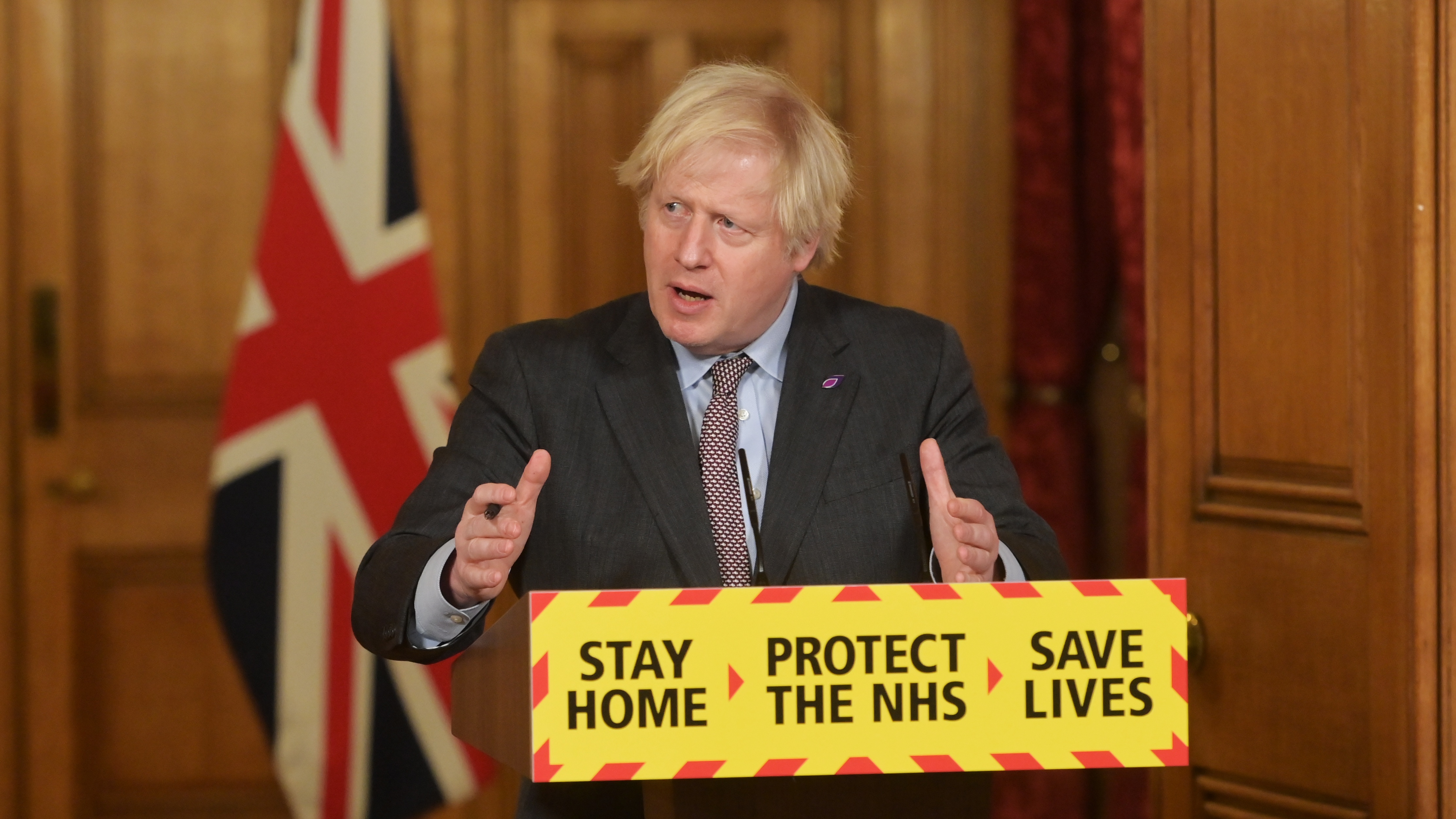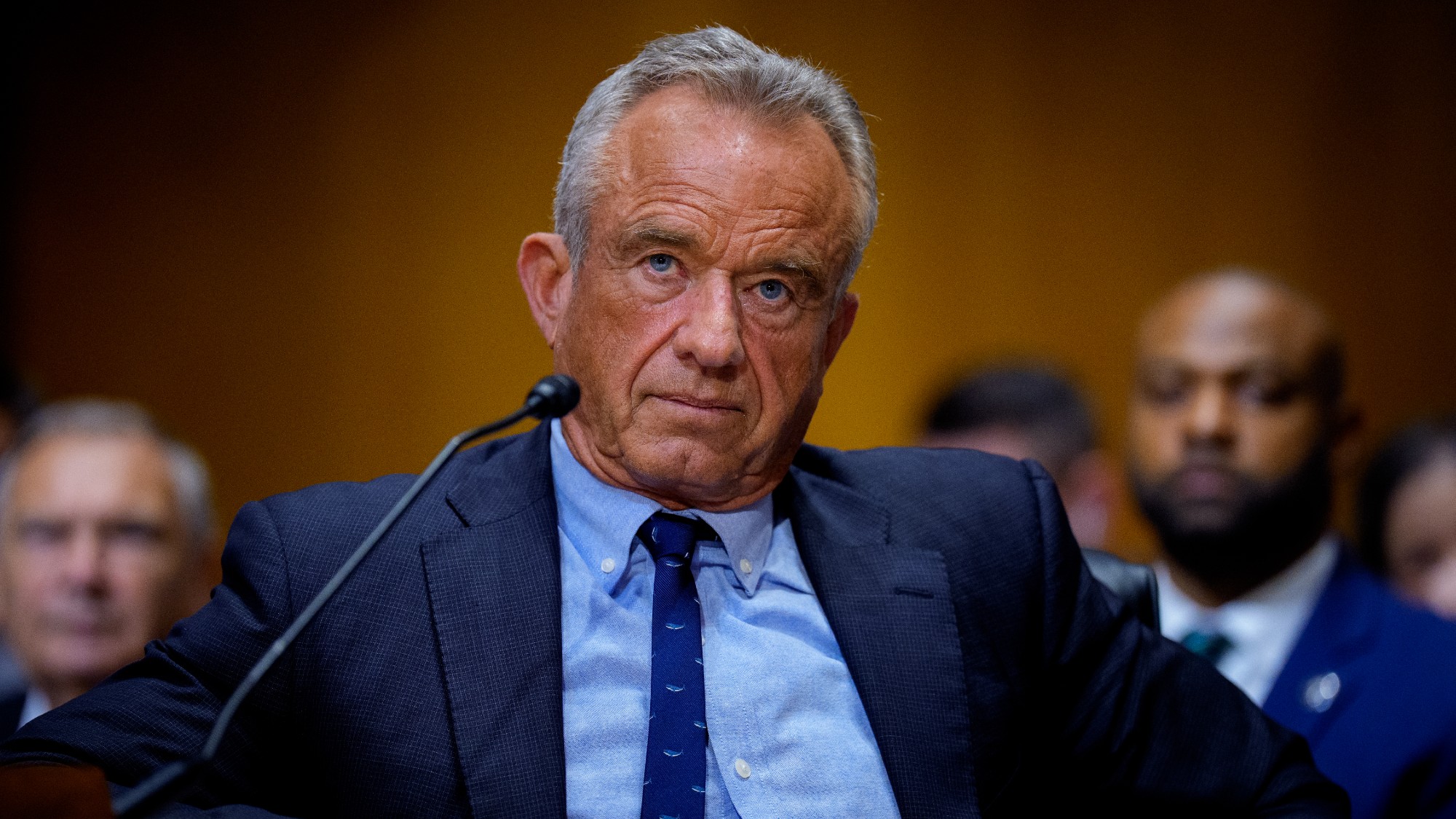UK quietly restricted Covid medicine exports to EU
Around 100 medications banned from export amid criticism of EU vaccine threats

A free daily email with the biggest news stories of the day – and the best features from TheWeek.com
You are now subscribed
Your newsletter sign-up was successful
The government last year placed export restrictions on medicines that could be used to treat Covid-19, despite criticising the EU for considering its own controls on vaccines produced on the continent.
Exports of around 100 drugs that have been suggested as possible treatments were banned because they “are needed for UK patients”, Politico reports.
Analysis by the news site found that the government “imposed controls on the export of over 170 medicines to other countries” since March last year.
The Week
Escape your echo chamber. Get the facts behind the news, plus analysis from multiple perspectives.

Sign up for The Week's Free Newsletters
From our morning news briefing to a weekly Good News Newsletter, get the best of The Week delivered directly to your inbox.
From our morning news briefing to a weekly Good News Newsletter, get the best of The Week delivered directly to your inbox.
Two of the most recent additions to the list, added in November last year, were dabigatran etexilate, a blood thinner used on some coronavirus patients, and semaglutide, which doctors believe could help ease the impact of Covid-19 on patients’ hearts. The list also includes flu vaccines and a “host of medicines associated with intensive care and long periods of intubation”, the site adds
The Department of Health and Social Care said that medicines “manufactured and intended for markets abroad are not subject to the export restrictions”.
“We have restricted the exporting and hoarding [of] medicines that have been placed on the market in the UK for UK patients to ensure the uninterrupted supply for NHS patients,” it added. “If medicines in the UK may be needed by our patients, they should not be diverted to other countries for financial gain.”
Boris Johnson this week attacked the EU amid reports that the bloc was considering imposing export controls on the Pfizer Covid vaccine produced in Belgium. The prime minister said he strongly opposed “restrictions on the supply of drugs across borders” and “restrictions on vaccines or their ingredients across borders”.
A free daily email with the biggest news stories of the day – and the best features from TheWeek.com
The EU export restrictions were mooted after AstraZeneca said it would not be able to deliver on a “three-digit million-euro” contract to reserve 300 million vaccine doses to the bloc. The pharmaceutical giant’s CEO Pascal Soriot has moved to defend the company’s rollout of the vaccine in the EU, describing its member states as “aggravated” and “emotional”.
However, there are signs that relations are thawing. After a crisis meeting held yesterday, described by both as “constructive”, EU Health Minister Stella Kyriakides said the pair “will work with the company to find solutions and deliver vaccines rapidly”.
Chas Newkey-Burden has been part of The Week Digital team for more than a decade and a journalist for 25 years, starting out on the irreverent football weekly 90 Minutes, before moving to lifestyle magazines Loaded and Attitude. He was a columnist for The Big Issue and landed a world exclusive with David Beckham that became the weekly magazine’s bestselling issue. He now writes regularly for The Guardian, The Telegraph, The Independent, Metro, FourFourTwo and the i new site. He is also the author of a number of non-fiction books.
-
 What to know before filing your own taxes for the first time
What to know before filing your own taxes for the first timethe explainer Tackle this financial milestone with confidence
-
 The biggest box office flops of the 21st century
The biggest box office flops of the 21st centuryin depth Unnecessary remakes and turgid, expensive CGI-fests highlight this list of these most notorious box-office losers
-
 The 10 most infamous abductions in modern history
The 10 most infamous abductions in modern historyin depth The taking of Savannah Guthrie’s mother, Nancy, is the latest in a long string of high-profile kidnappings
-
 How corrupt is the UK?
How corrupt is the UK?The Explainer Decline in standards ‘risks becoming a defining feature of our political culture’ as Britain falls to lowest ever score on global index
-
 Childhood vaccines: RFK Jr. escalates his war
Childhood vaccines: RFK Jr. escalates his warFeature The health secretary cut the number of recommended childhood vaccines from 17 to 11
-
 The high street: Britain’s next political battleground?
The high street: Britain’s next political battleground?In the Spotlight Mass closure of shops and influx of organised crime are fuelling voter anger, and offer an opening for Reform UK
-
 EU-Mercosur mega trade deal: 25 years in the making
EU-Mercosur mega trade deal: 25 years in the makingThe Explainer Despite opposition from France and Ireland among others, the ‘significant’ agreement with the South American bloc is set to finally go ahead
-
 Who is paying for Europe’s €90bn Ukraine loan?
Who is paying for Europe’s €90bn Ukraine loan?Today’s Big Question Kyiv secures crucial funding but the EU ‘blinked’ at the chance to strike a bold blow against Russia
-
 Moscow cheers Trump’s new ‘America First’ strategy
Moscow cheers Trump’s new ‘America First’ strategyspeed read The president’s national security strategy seeks ‘strategic stability’ with Russia
-
 Is a Reform-Tory pact becoming more likely?
Is a Reform-Tory pact becoming more likely?Today’s Big Question Nigel Farage’s party is ahead in the polls but still falls well short of a Commons majority, while Conservatives are still losing MPs to Reform
-
 Taking the low road: why the SNP is still standing strong
Taking the low road: why the SNP is still standing strongTalking Point Party is on track for a fifth consecutive victory in May’s Holyrood election, despite controversies and plummeting support